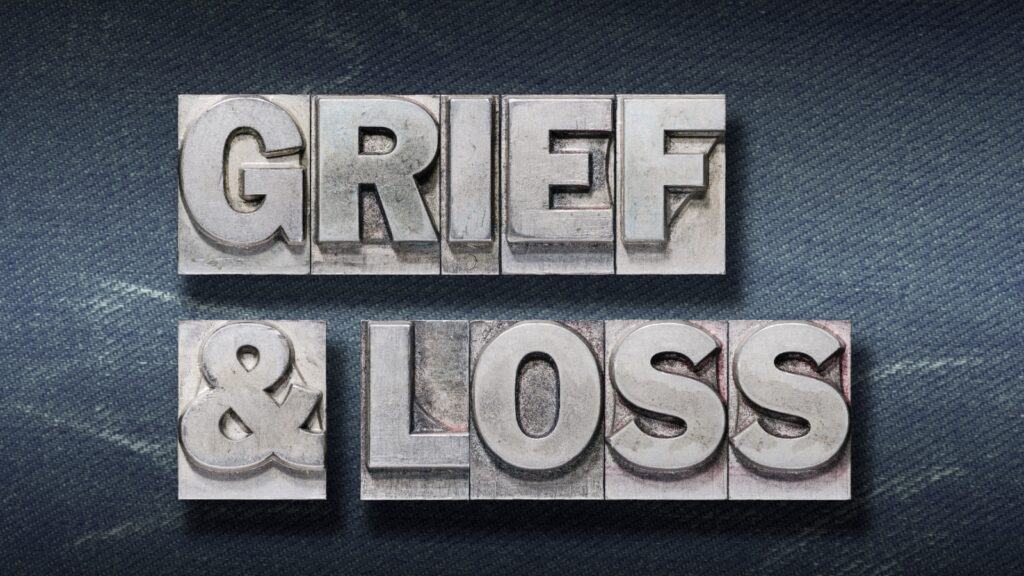The Fundamental Fear of Loss: We All Experience It. This Is How We Deal With It.
The fear of loss is a profound and universal human experience that manifests in various forms, from the fear of losing loved ones to the anxiety of financial loss. This fear is deeply rooted in our psychological and emotional makeup and significantly affects our behavior, decision-making, and overall well-being. This article explores the fundamental fear of loss, examining its psychological underpinnings, manifestations, and how it shapes our lives.
Loss Aversion

One of the most well-documented aspects of the fear of loss is the concept of loss aversion, introduced by psychologists Amos Tversky and Daniel Kahneman. Loss aversion refers to the tendency for individuals to prefer avoiding losses rather than acquiring equivalent gains. In other words, the pain of losing something is psychologically more impactful than the pleasure of gaining something of equal value. This principle is a cornerstone of prospect theory, which explores how people make decisions under risk.
Neurological Basis

The fear of loss is not just a psychological phenomenon but also has a neurological basis. Research indicates that specific regions of the brain, such as the amygdala and the striatum, are activated during experiences of loss. The amygdala, which processes fear, generates anxiety in response to potential losses, while the striatum, involved in prediction and reward, shows greater activation in response to losses than gains.
Existential Fear

At a more existential level, the fear of loss is closely tied to the fear of death. This fundamental fear, often referred to as death anxiety, underlies many of our other fears and anxieties. Death anxiety is considered a basic fear that influences the development and maintenance of various psychological conditions, including anxiety and depressive disorders.
The terror management theory (TMT) posits that much of human behavior is motivated by an unconscious fear of mortality, leading individuals to seek meaning and value in their lives to buffer against this existential dread.
Grief and Bereavement

Grief is a natural response to the loss of a loved one and is a poignant manifestation of the fear of loss. Philosophers and psychologists have explored grief extensively, highlighting its role in helping individuals adapt to loss. Grief is not just about the loss of a person but also about the loss of possibilities and future experiences that were tied to that person. This loss of possibilities can profoundly alter one’s life structure and sense of identity.
Financial and Material Loss

Loss aversion significantly impacts financial decision-making. Individuals are often more hesitant to invest in opportunities perceived as risky due to the potential for loss, even if the potential gains are substantial. This aversion to financial loss can lead to overly conservative investment strategies and missed opportunities for growth.
Fear of Abandonment and Failure

The fear of loss also manifests as a fear of abandonment and failure. Fear of abandonment involves anxiety about losing relationships and social connections, while fear of failure pertains to concerns about losing status, respect, or self-worth. Both fears can drive behaviors aimed at avoiding these perceived losses, such as perfectionism, overachievement, and social withdrawal.
Acknowledgment and Acceptance

One of the first steps in coping with the fear of loss is acknowledging its existence. Recognizing that fear of loss is a natural and universal experience can help individuals address it more constructively. Acceptance involves understanding that loss is an inevitable part of life and that it is possible to find meaning and growth even in the face of loss.
Psychological and Philosophical Approaches

Various psychological therapies, such as cognitive-behavioral therapy (CBT), can help individuals manage their fear of loss by challenging negative thought patterns and developing healthier coping mechanisms. Philosophical approaches, such as those discussed by Hannah Arendt and other thinkers, emphasize the importance of living in the present and cultivating a sense of inner security that is not dependent on external possessions or relationships.
Rituals and Social Support

Rituals and social support play crucial roles in helping individuals cope with loss. Grief rituals, which are common in many cultures, provide a structured way to express and process emotions. Social support from friends, family, and community can offer comfort and a sense of connection during times of loss.
The Takeaway

The fundamental fear of loss is a complex and multifaceted phenomenon that influences many aspects of human life. From the psychological principles of loss aversion to the existential dread of mortality, this fear shapes our behaviors, decisions, and emotional experiences. By understanding and addressing the fear of loss, individuals can develop healthier ways to cope with it and find meaning and resilience in the face of life’s inevitable changes.
Humans manage the fundamental fear of loss through various strategies and coping mechanisms.
1. Mindfulness and Meditation:
– Practicing mindfulness and meditation helps individuals stay present and manage anxiety related to the fear of loss. Techniques such as deep breathing, progressive muscle relaxation, and guided meditations can calm the nervous system and reduce stress.
2. Emotional Regulation and Expression:
– Developing emotional regulation skills, such as identifying, expressing, and responding to emotions appropriately, can help manage the fear of loss. Writing in a journal, engaging in artistic expression, and allowing oneself to cry are healthy ways to process and release emotions.
3. Social Support and Communication:
– Talking to friends, family, or a therapist about fears and anxieties can provide emotional support and validation. Open lines of communication help individuals feel understood and less isolated in their fears.
4. Creating Meaning and Acceptance:
– Finding meaning in life and death, such as believing in an afterlife or focusing on the positive impact a loved one had, can help individuals cope with loss. Accepting that fear and grief are natural parts of life and learning to live with uncertainty can also be beneficial.
5. Self-Care and Healthy Lifestyle:
– Engaging in self-care activities, such as regular exercise, healthy eating, and pursuing hobbies, helps maintain overall well-being. Strengthening social support networks and practicing self-compassion are also crucial in managing the fear of loss
3 Ways Embodiment Can Help Manage Feelings Of Loss And Grief

This article offers 3 ways embodiment (the practice of feeling and sensing) helps navigate loss. Please understand there are no hard and fast answers. However, embodiment can be a powerful aid in managing the feelings of pain, uncertainty, and dread that navigating an uncertain landscape after a loss can bring.
READ: 3 Ways Embodiment Can Help Manage Feelings Of Loss And Grief.
18 Signs A Man Might Be Unhappy In His Relationship

In any intimate relationship, periods of difficulty and misunderstanding can arise, often manifesting in subtle or hidden behaviors. Particularly for men, who may traditionally find it challenging to express vulnerabilities openly, these struggles can surface through indirect actions and changes in behavior. Recognizing these signs is not just about averting crises but about fostering a supportive environment where open communication can thrive. Here, we explore the nuanced ways men might signal their distress in a relationship and offer strategies to support them through these times. READ:18 Signs A Man Might Be Unhappy In His Relationship
Join Us

Join us on this empowering journey as we explore, celebrate, and elevate “her story.” The Queen Zone is not just a platform; it’s a community where women from all walks of life can come together, share their experiences, and inspire one another. Welcome to a space where the female experience takes center stage. Sign up for our newsletter so you don’t miss a thing, Queen!







